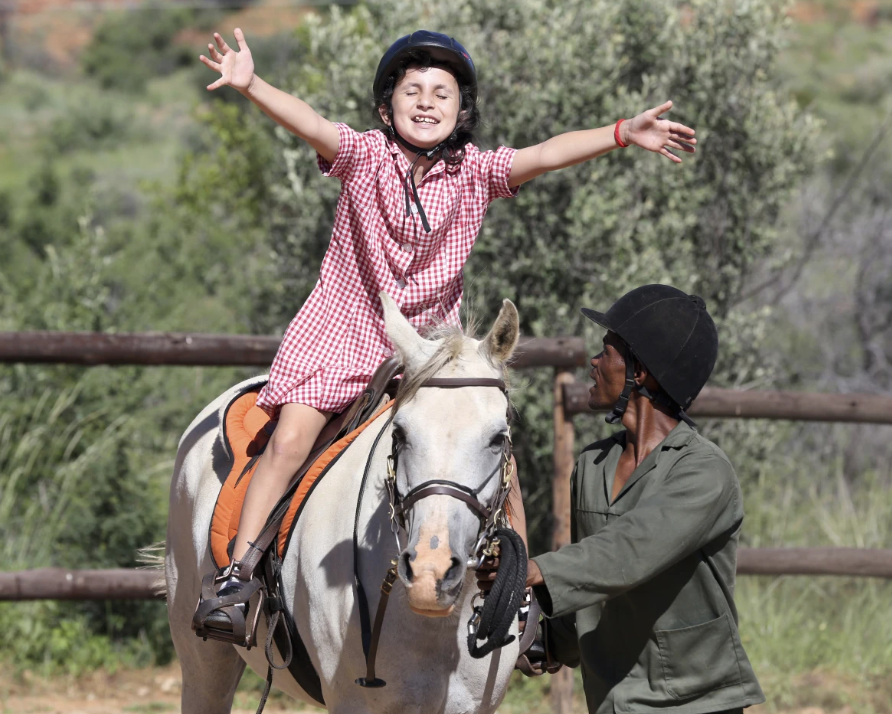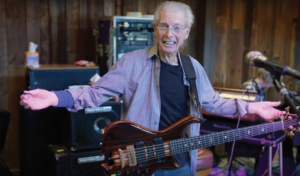In Namibia, Susan de Meyer uses the calming and intuitive nature of horses to support children with learning differences and developmental conditions like autism and ADHD. Her program, called “Enabling Through the Horse,” is designed to help kids through interaction with horses — from riding and grooming to simply bonding with them.
Each weekday morning near Windhoek, the capital of Namibia, de Meyer welcomes a group of eight to ten children from local special education schools. These children, each with unique needs, spend time with the horses — and in return, the animals help encourage calmness, communication, and emotional connection.
De Meyer, who grew up surrounded by horses on a farm, says that one of the most powerful aspects of equine therapy is the non-judgmental presence of the animals. “The horse is the hero in this whole situation because these kids don’t want to be around a lot of people,” she explains. The horses create a safe, accepting environment for children who may otherwise feel misunderstood or overwhelmed.
Her efforts have earned recognition, including an award from the International Equestrian Federation, which praised the program for highlighting the horse’s ability to display sensitivity and empathy. The initiative is also supported by the Namibian Equestrian Federation.
The therapeutic effects of animals, including horses, have been widely recognized — from service dogs helping veterans with PTSD to therapy animals comforting hospital patients. In fact, after the 2023 wildfires in Hawaii, horse therapy offered emotional relief to some survivors dealing with grief and trauma.
De Meyer jokes that she has “two-and-a-half horses.” The team includes two full-size Arabians — a white mare named Faranah and a brown gelding named Lansha — along with Bonzi, a miniature horse roughly the height of a 5-year-old child. The Arabians are often used for therapy due to their gentle nature and size, which helps children build confidence.
“When they stroke the horse, the therapy begins,” says de Meyer. “This is a very big animal compared to their height, and they’re not afraid. Then they ride it, give it commands, and start forming a relationship.” The experience fosters self-esteem, communication, and emotional growth.
Children in her program have a range of diagnoses and challenges, from autism and ADHD to Down syndrome and fetal alcohol spectrum disorders. Some are nonverbal, others are sensitive to touch, and many have developmental delays. Yet the transformation in their behavior and abilities through equine therapy is profound.
Chriszell Louw, a teacher at Dagbreek School — one of only two government schools in Namibia for students with intellectual disabilities — has seen the benefits firsthand. “We have a learner who usually talks nonstop, but here, she knows to stay quiet. She follows instructions and stays calm,” Louw says. “Some were initially scared of the horses, but now they’re excited every time they hear we’re going.”
Beyond emotional development, the sessions also help children improve physically — enhancing fine and gross motor skills, muscle strength, balance, coordination, and posture. These improvements are especially important for kids who struggle in traditional classroom environments.
One popular exercise involves children letting go of the reins, extending their arms outward, and using only their body to maintain balance while being led around the paddock. As they do this, their faces light up with joy — some even feeling like they’re flying.
“We’re changing the world for these kids,” de Meyer says, smiling.













